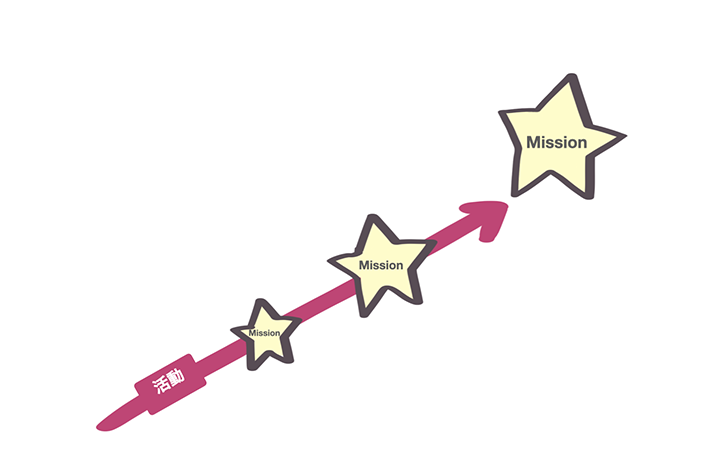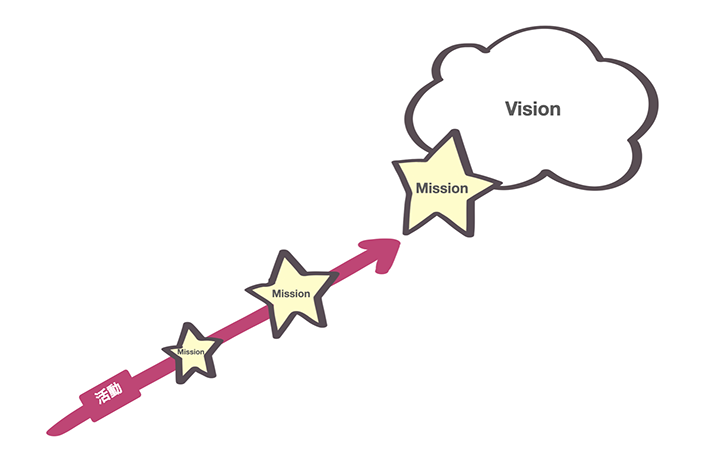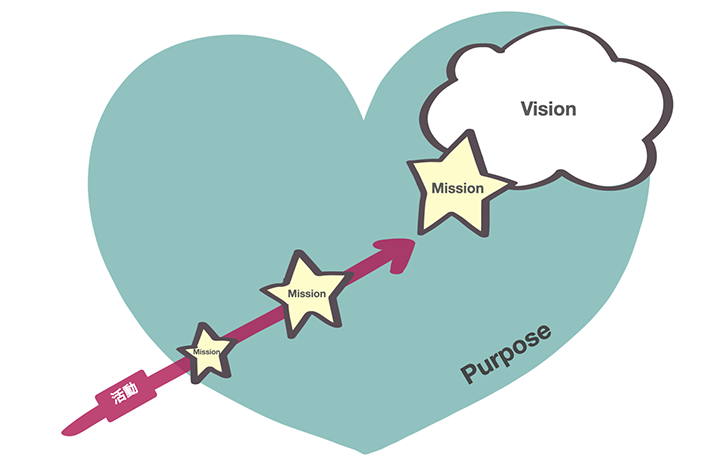I heard that Anchorstar has a personal trainer every week and everyone exercises together.
Yes, we started this about a year ago. The personal trainer actually comes to the office. We used to do it at Zoom during Covid, but now that Covid has settled down, we all gather in the same room and exercise for an hour every week, although we all wear masks.

I gained weight because of Covid. Last spring, when I had to stay at home all the time, I didn’t even go out to eat, and we all started to look out of shape. I realized the importance of exercise.
In addition, we have many partners with whom we do very large and important work, and Anchor Star is a small team, so if one or two of us were to fall ill, it would cause a lot of trouble.
If one or two of us were to fall ill, it would cause a lot of trouble. If we don’t, we won’t be able to achieve the purpose of Anchorstar and our partners, so the entire company is working on health management and physical fitness. So we are working on health management and physical fitness throughout the company.
You said that we cannot achieve our Purpose unless we take care of our bodies. You once wrote an article on “Purpose Driven”. Could you tell us what you mean by “Purpose” and “Purpose Driven”?
The words “Purpose Driven” and “Purpose” have been used a lot lately, haven’t they? One of the most common situations where you hear the word “purpose” used is at immigration checkpoints at airports. One of the questions the officer will ask you is “What is the purpose of your visit?” This is where the word “purpose” comes into play. It’s a question that asks, “What is the purpose of your visit?” In the same way, the word “Purpose” means “for what purpose” you or your company exists, “for what purpose” you are working, and “for what purpose” you are doing.
The word “driven” in the phrase “Purpose Driven” means “driven by,” and so “being driven by your strong belief in your Purpose” is called “Purpose Driven.
Drive means doing things by yourself, but driven means being driven.
I see. I remembered that “Purpose” means “Objective”, but when you say it means “For what purpose”, it gives a deeper meaning to business. Also, I often hear the words “mission driven” and “vision driven” when it comes to “XX driven”. Can you tell us how they are different from “Purpose Driven”?
Yes, it is. In order to answer this question, you may need to understand the meaning of the words “mission” and “vision” properly.
I know it’s a little late for this, but could you tell me the meaning of the words “mission” and “vision”? First of all, what does “mission” mean in your view, Taro?
I think that a mission is a goal that can be achieved, or a goal whose degree of achievement can be measured.
For example, in “Mission: Impossible,” the main character, Ethan Hunt, has a mission to infiltrate the CIA and steal necessary data in order to thwart the schemes of bad guys, in a famous scene. The mission is to “steal,” right? The mission is to steal and stop the bad guys. It’s an easy goal to achieve.
I think there are a lot of companies that have a mission, but in my opinion, it doesn’t have to be as simple as “Mission: Impossible,” but it should be something that you can measure so that you can see how much progress you are making toward the mission.
For example, if your mission is to “create a prosperous world”, you can’t tell how close you are to that mission unless you can properly measure “prosperous”. But if you steal a hard drive, or if your mission is to “connect the world as one,” like Facebook’s mission, you can measure it by saying, “Right now, 2.9 billion people out of 7.9 billion are connected. A mission is something that allows us to see how much progress we have made toward the mission and to make a concrete plan on how to achieve the remaining 5 billion.
What about “vision”?
A vision is an image of what you want to achieve.
We can all imagine the same image in our minds, but there is a gap between that image and the current situation. The gap between that image and the current situation is a vision-driven state, where we try to fill that gap and get closer to the image.
So, I think it is very important to make sure that everyone has the same image in their minds. Since it is only an image, an imagination, everyone may be slightly off. In order for the vision to become a common language, it is important to make sure that we are all on the same page and imagining the same thing.
I think there has been a tendency for companies to set missions and visions for a long time, but recently, in addition to missions and visions, the “Purpose” that I mentioned earlier is often mentioned. Do you think that “Purpose” is a substitute for “Mission” and “Vision”, or do you think that “Purpose”, “Vision” and “Mission” can all exist at the same time?
Of course they can exist at the same time. However, they are all “about the future,” and while they are necessary for the company to move forward as an organization, they can cause a lot of confusion if you’re not careful, so I think you have to understand the relationship between them as well as their individual meanings.
I often get confused in this area. Please tell me what the relationship is between mission, vision, and purpose.
I made a diagram of this, so let me explain it while looking at the diagram. First of all, mission, as I said before, is an achievable or measurable goal.

In this diagram, this is the star sign. But missions end when they are accomplished, don’t they? In the movie “Mission Impossible”, the main character finishes every mission. But new missions keep coming, don’t they? So, it’s okay to be close to completing a mission or to have completed it.
Or they can change to new missions along the way. In other words, I believe that missions are something that can be updated. Each time this happens, I think it is necessary to explain to all teams and all employees that the mission has changed to a new one, or that this is the kind of mission we are talking about, but it is okay to update it.

And vision. In this diagram, it looks like a cloud, but it is an image or imagination in everyone’s mind that says, “This is where we are headed as we proceed with our mission and corporate activities.
Depending on the company, the vision may be drawn in pictures, posters, or art. Some companies try to express their visions in words, so that they can create a more vivid and accurate image in their minds. An image of the ideal state or utopia that lies ahead. A vision is an imagination of “what it would be like if this happened.
So, please tell us about “Purpose”.
Lastly, as I said at the beginning, “Purpose” refers to the reason why we are doing what we are doing. It’s the underlying reason why you are doing what you are doing. It’s like, “Why is Ethan Hunt risking his life like that to accomplish an impossible mission?

Euron Musk, Steve Jobs, Bill Gates, and Mark Zuckerberg are all working towards their own imagined visions and missions, “why and for what purpose”.
I think that each company and each person has their own personal path. For example, we want to make the world a better place, we want to improve people’s lives, we want to reduce the number of people suffering, and we want to be a human being who cares about nature. I feel that the mission and vision are built on top of such a path.
Mission, vision, and purpose can coexist. You can have just two of them, or just one of them. Of course, it’s okay to have all of them.
However, the more there are, the more complicated it becomes, so it is important to organize them in a way that they can be explained properly, and to make sure that they can be communicated both internally and externally.
So, Vision is the view of the world that “I” want to realize, but I felt that “Purpose” is only possible when there is a “partner”.
It really is. Lately, I feel that the world is no longer allowing us to exist only with our ego, or rather, our selfishness. Until now, many companies have been able to exist by saying, “We’ve created this kind of company, we can make this kind of product, and it looks good, so please pay us well.”
But with Covid and the recent movements, there is an atmosphere around the world that says, “Let’s do something meaningful for each other,” and I think this is spreading to companies as well.
“What does your company mean to the world? Why does it exist? If you just say, “We envision a world like this,” you will be asked, “Why? If you just say, “We envision a world like this,” you will be asked, “Why?
We believe that we can contribute to society in this way because we have these assets and skills, and we believe that society will become a better place if we do this.” Only when you can explain this properly can people say, “Then I will support your company” or “I agree with your company’s activities.
That makes a lot of sense. One more thing I want to ask you is, as you mentioned earlier, it is easy to get people to support you if you set up a personal path. I’ve heard the term “Purpose Branding” used a lot lately. What do you think about it?
By using a company’s per-pass as part of its branding, consumers will become supporters of the company, thinking that it is a good company, that it is a cool company, and that it is trying to fulfill its role in society. I think this is a very beneficial way of thinking about business, because once people agree with a company, they will keep buying their products.
However, what I think we need to be careful of is that we only use the surface of Purpose Branding when it is not really Purpose Driven. If you say to the outside world, “This is what we want to be” or “This is the kind of social issue we want to solve,” but inside the company, you are chasing after the daily numbers and you end up saying, “That branding is just saying that, just achieve the numbers tomorrow. If this is the case, the company will become just another “non-perpus-driven company that is doing path branding.
If that happens, people will think, “This company is doing something different from what it says. The customers who would have been supportive of the company may think, “You’re just saying that,” and reveal the nature of the company through the use of Purpose Branding.
I believe that being truly “Purpose Driven” is an absolute requirement for Purpose Branding.
I think that companies that have defined their permits will be asked whether or not they are really implementing the permits that they say to the outside world in their daily activities.
I see. At the beginning of the interview, Taro-san said that he has a personal trainer at Anchor Star and takes care of his health. I guess you have to take care of not only the outside, but also the inside.
It would be nice if there was something that would make it easy to change just the outside. It’s a lot of exercise. If there was a button that could make me look better with just one button, I would be tempted to push it.
But first of all, you have to build up your muscle strength, reduce your visceral fat, and be a positive, energetic anchor star both physically and mentally.
I’d be embarrassed if someone told me that I looked better but my eyes lacked energy. I’m going to do my best to exercise.









